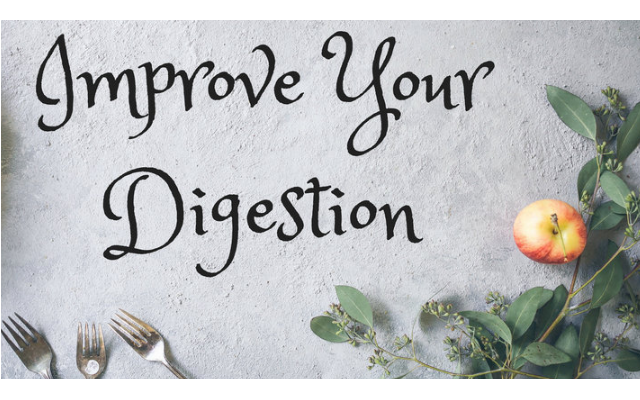Occasional digestive problems are a common complaint, and there are several possible causes, from diet to stress. Everyone experiences occasional digestive symptoms such as upset stomach, gas, heartburn, nausea, constipation or diarrhea also.
An unhealthful diet or lifestyle can cause more regular digestive problems, and lifestyle changes can often help resolve symptoms.
Here are 10 evidence-based ways to improve your digestion naturally.
Stay Hydrated
Low fluid intake is a common cause of constipation, drinking 1.5–2 litersof non-caffeinated fluids per day to prevent constipation. However, you may need more if you live in a warm climate or exercise strenuously.
In addition to water, you can also meet your fluid intake with herbal teas and other non-caffeinated beverages.
Some fruits and vegetables that are high in water, such as cucumber, zucchini, celery, tomatoes, melons, strawberries, grapefruit and peaches, try to include these things in your diet plan.
Eat slowly
It’s easy to eat too much too quickly if you’re not paying attention, which can lead to bloating, gas and indigestion. Studies have shown that mindfulness may reduce digestive symptoms in people with ulcerative colitis and Irritable bowel syndrome (IBS).
To eat mindfully:
- Eat slowly.
- Focus on your food by turning off your TV and putting away your phone.
- Notice how your food looks on your plate and how it smells.
- Select each bite of food consciously.
- Pay attention to the texture, temperature and taste of your food.
Chew Your Food
Digestion starts in your mouth. Your teeth break down the food into smaller pieces so that the enzymes in your digestive tract are better able to break it down.
When you chew your food thoroughly, your stomach has to do less work to turn the solid food into the liquid mixture that enters your small intestine. Chewing produces saliva, and the longer you chew, the more saliva is made. Saliva helps start the digestive process in your mouth by breaking down some of the carbs and fats in your meal.
Chewing your food thoroughly ensures that you have plenty of saliva for digestion. This may help prevent symptoms such as indigestion and heartburn.
Choose good diet plan

Food additives, including glucose, salt and other chemicals, have been suggested to contribute to increased gut inflammation, leading to a condition called leaky gut.
Trans fat are found in many processed foods. They’re well-known for their negative effects on heart health but have also been associated with an increased risk of developing ulcerative colitis, an inflammatory bowel disease.
Processed foods like low-calorie drinks and ice creams often contain artificial sweeteners, which may cause digestive problems and it may increase your number of harmful gut bacteria.
Therefore, eating a diet based on whole foods and limiting the intake of processed foods may be best for optimal digestion.
Get Plenty of Fiber
It’s common knowledge that fiber is beneficial for good digestion. Soluble fiber absorbs water and helps add bulk to your stool. Insoluble fiber acts like a giant toothbrush, helping your digestive tract keep everything moving along.
A high-fiber diet has been linked to a reduced risk of digestive conditions, including ulcers, reflux, hemorrhoids, diverticulitis and IBS. Prebiotics are another type of fiber that feed your healthy gut bacteria. Diets high in this fiber have been shown to reduce the risk of inflammatory bowel conditions.
Add Healthy Fats
Good digestion may require eating enough fat. Fat helps you feel satisfied after a meal and is often needed for proper nutrient absorption.
Studies have shown that omega-3 fatty acid may decrease your risk of developing inflammatory bowel diseases like ulcerative colitis. Foods high in beneficial omega-3 fatty acids include flax seeds, chia seeds, nuts (especially walnuts), as well as fatty fish like salmon, mackerel and sardines.
Stress
Stress can wreak havoc on your digestive system. Stress hormones directly affect your digestion. When your body is in fight-or-flight mode, it thinks you don’t have time to rest and digest. During periods of stress, blood and energy are diverted away from your digestive system.
Your gut and brain are intricately connected — what affects your brain may also impact your digestion. Therefore, incorporating stress management techniques, such as deep belly breathing, meditation or yoga, may improve not only your mindset but also your digestion.
Change your bad habits

Bad habits such as smoking, drinking too much alcohol and eating late at night aren’t great for your overall health.
Smoking nearly doubles the risk of developing acid re-flux,This bad habit has also been associated with stomach ulcers, increased surgeries in people with ulcerative colitis and gastrointestinal cancers.
Excessive alcohol consumption has been linked to bleeding in the gastrointestinal tract, alcohol has also been associated with inflammatory bowel diseases, leaky gut and harmful changes in gut bacteria.
Listen to Your Body
When you’re not paying attention to your hunger and fullness cues, it’s easy to overeat and experience gas, bloating and indigestion.
Take time to eat slowly and pay attention to how full you’re getting is one way to prevent common digestive problems. Emotional eating negatively impacts your digestion. Taking the time to relax before a meal may improve your digestive symptoms.
Exercise reguarly
Regular exercise is one of the best ways to improve your digestion. Exercise and gravity help food travel through your digestive system. Therefore, taking a walk after a meal may assist your body in moving things along.
Studies suggest that exercise may reduce symptoms of inflammatory bowel diseases due to anti-inflammatory effects, such as decreasing inflammatory compounds in your body, which may be beneficial in preventing inflammatory bowel conditions.
These simple changes make large impact on your gut health, try to adopt these changes in life and improve your digestion and overall health.





